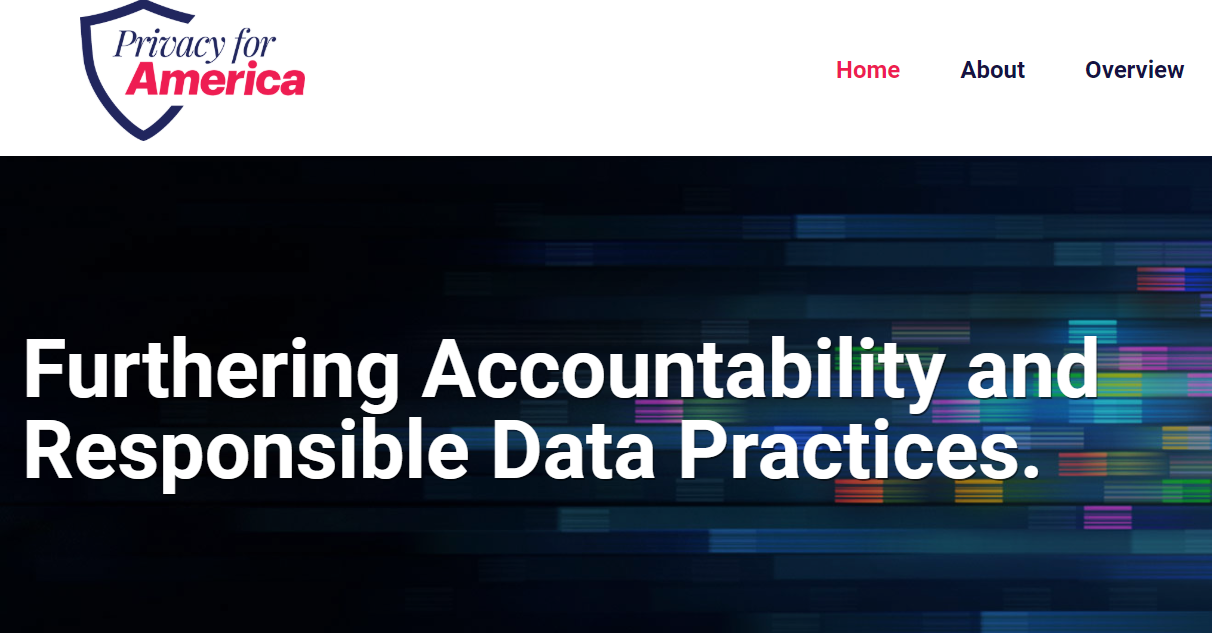Ad Groups Form Privacy Coalition
The smarter way to stay on top of the multichannel video marketplace. Sign up below.
You are now subscribed
Your newsletter sign-up was successful
WASHINGTON — Some major ad trade groups are trying to get out in front of D.C‘s current wave of support for regulating data used for targeted advertising, including advocating for what they say are “significant restrictions on data use for advertising.”
One of the goals is to pre-empt state efforts to regulate data use by advertisers.
The American Association of Advertising Agencies (the 4A's), Association of National Advertisers, Interactive Advertising Bureau, and Network Advertising Initiative have launched the Privacy for America Coalition, with the avowed aim of working with Washington to "modernize" data privacy protections and enact "groundbreaking comprehensive federal consumer data privacy and security legislation."
RELATED: DelBene Introduces Privacy Bill
There is bipartisan support from virtually all quarters for some type of federal privacy legislation, so advertisers are looking to put a stake in the ground for their "type" of such protections.

A key to gaining support from some privacy advocates and Democrats will be defining that data and determining how restrictive the restrictions will be. Most everyone agrees sensitive personal data, social security numbers, health and financial records, etcetera, should be restricted. But whether that extends to other types of less sensitive info, and how much control consumers have, are key points of contention in the ongoing privacy debate.
They say their goal is to make “personal data‘ less vulnerable to breaches and misuse.
The smarter way to stay on top of the multichannel video marketplace. Sign up below.
The coalition outlined what it says should be ”clear, enforceable and nationwide“ consumer privacy protections.
RELATED: Dems Call for Privacy Bill of Rights
Advertisers are looking to preempt a ”patchwork“ of state efforts at privacy regulation, so nationwide is important. In fact, the coalition said it had already commissioned a study that found that ”63% of registered voters believed letting the federal government pass a national data privacy law would be the most effective approach to protect consumer data, compared to only 17% of registered voters who believed letting individual states pass their own data privacy laws would be most effective.”
The key elements of the proposal are:
• “Prohibiting a variety of specific data practices, including using a person’s data to deny them a job, credit or healthcare, unless specifically permitted under existing federal or state laws;
• “Using personal characteristics like race or color to discriminate against a person in setting prices or determining eligibility for products or services; or sharing consumer data with third parties without enforceable contracts to ensure their lawful use of the data;
• “Creating a new Federal Trade Commission (FTC) Data Protection Bureau, to enhance the FTC’s longstanding expertise in overseeing privacy matters; granting strengthened rulemaking authority to the FTC; and authorizing strict penalties for companies that engage in prohibited privacy practices – to increase substantially privacy oversight and enforcement;
• “Imposing significant restrictions on data use for advertising — including banning certain types of data from being collected and used for advertising, limiting the purposes for which advertising data may be used, and allowing consumers to identify their preferences regarding what advertising they do or do not wish to receive; and
• “Requiring strong data security protections to guard against data breaches.”
RELATED: IAB Offers Privacy First Principles
Among other key issues in the success of the ad-backed plan is how consumers "identify their preference," by opting out or opting in, or perhaps some combination of the two depending on the type of information.
Leading the coalition will be Stuart Ingis, co-chair of Venable LLP’s eCommerce, Privacy, and Cybersecurity Group, and Jessica Rich, former director of the Federal Trade Commission’s Bureau of Consumer Protection.
“Consumers should be confident that rules are in place to protect their privacy when they enjoy benefits like loyalty programs and savings, the convenience of a personalized experience, or ready access to the wide variety of freely accessible content,” said Marla Kaplowitz, CEO of the 4As, in a statement. ”Harmful data practices should not be subject to choice — they should be prohibited. That’s exactly what this new framework does.“
Contributing editor John Eggerton has been an editor and/or writer on media regulation, legislation and policy for over four decades, including covering the FCC, FTC, Congress, the major media trade associations, and the federal courts. In addition to Multichannel News and Broadcasting + Cable, his work has appeared in Radio World, TV Technology, TV Fax, This Week in Consumer Electronics, Variety and the Encyclopedia Britannica.

